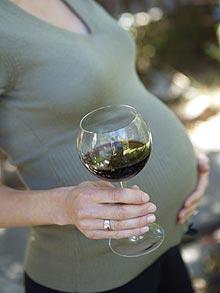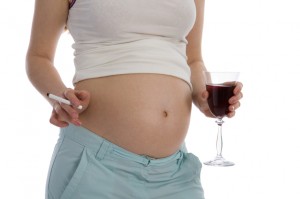Is it OK to Drink While Pregnant?
Risky Behavior: Drinking While Pregnant
If you were to ask any John Q. Public: is it OK to drink while pregnant? Most if not all people would respond with a resounding No! But this wasn’t always the case. It wasn’t until the 1970s that the medical profession began to recognize what was to be called Fetal Alcohol Syndrome (FAS). There followed a widespread social awareness of what was to become thought of as a major public health risk.
But has this issue been over-exaggerated? More recently, people have begun to question the issue of whether or not it is safe to drink while pregnant.
A Distinction About Drinking While Pregnant
We are not talking about heavy drinking or binge drinking. For decades, researchers have known that heavy drinking during pregnancy can cause birth defects. But the potential effects of small amounts of alcohol on a developing baby are not well understood.
Although heavy drinking during pregnancy can obviously be harmful, the risks of light and moderate drinking aren’t as clear.
Also, it is known that drinking any amount of alcohol within the first trimester of pregnancy is not safe to do – we’re not talking about binge drinking; what we’re discussing is light or moderate drinking, that is, 1 – 2 drinks in a given day with no more than 2 days in a week where alcohol is consumed and only after the first trimester.
Things to Consider Prior to Drinking While Pregnant
The problem with drinking alcohol during your pregnancy is that there is no amount that has been proven to be safe. Also, other factors must be considered such as individual’s body make-up and chemistry. For example, some women have higher levels of the enzyme that is needed to break down alcohol, therefore, if a pregnant woman with low levels of this enzyme drinks, her baby may be more susceptible to harm because the alcohol will be in her system for a longer period of time.
The Flip-side of the Argument: Ok to Drink While Pregnant
According to a British study, children born to mothers who drank moderately while pregnant did not show signs of balance problems when they were 10; trouble with balance is a good indicator of problems with brain development in utero. And a study conducted in Denmark reported that light to moderate drinking early in pregnancy was not associated with declines in intelligence, attention or self-control in children at age 5.
Trends: Women Choose to Drink While Pregnant
Given the uncertainty of how much is too much and how little is okay, some moms-to-be choose to not drink while pregnant altogether. But a recent CDC study found that about one in eight pregnant women in the U.S. report that they had a drink while pregnant in the past month. For whatever their reasoning, more and more pregnant women are choosing to drink alcohol.
Possible Benefits to Drink While Pregnant
The relaxing properties of a glass of wine, as well as the health benefits of red wine itself, is what is leading some pregnant women to indulge in a glass here and there. Many of these moms-to-be said that their doctors actually advised them to have a drink, especially late in their third trimester, for the relaxing qualities alcohol has. When weighing the risks of maternal stress to the baby with light to moderate drinking, some doctors are saying a little is OK.
A study asked more than 12,000 new moms if they drank during pregnancy and how much. The study followed the children through their early years in order to assess their behavior. The result was a finding that the children of moms who drank moderately during pregnancy actually had fewer behavior and cognitive problems than the kids of the moms who didn’t drink at all.
Sources:



